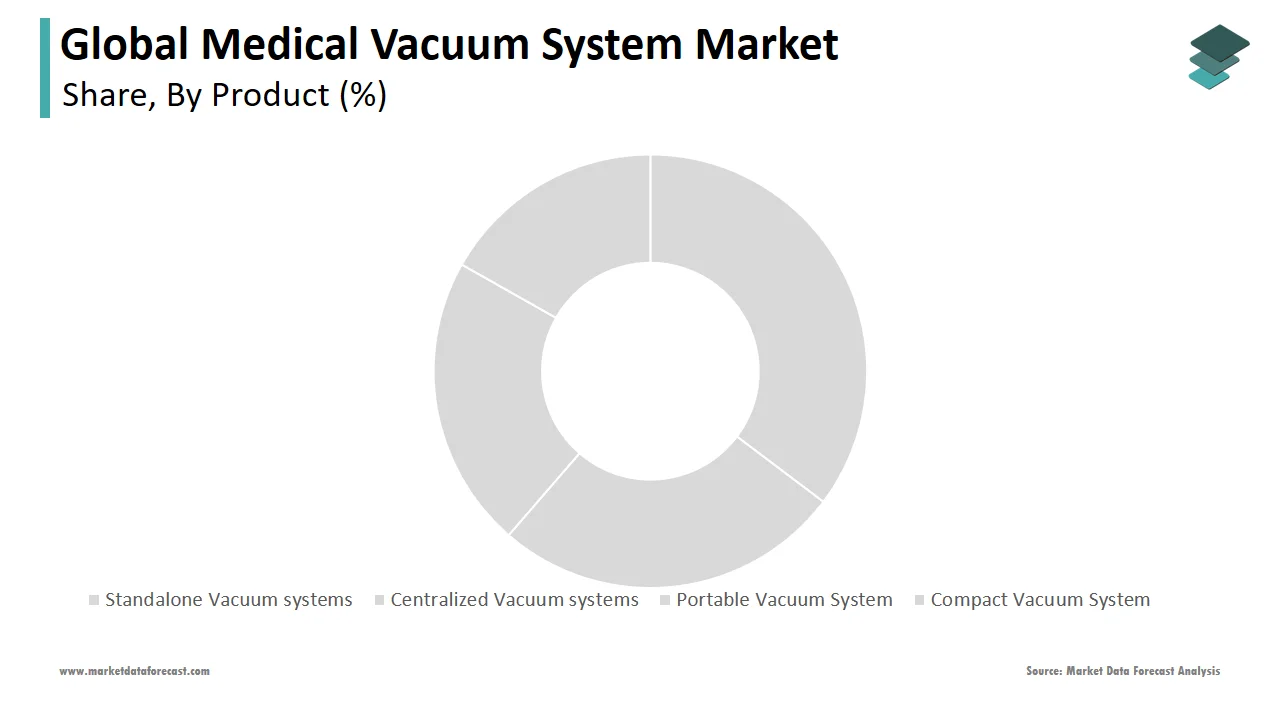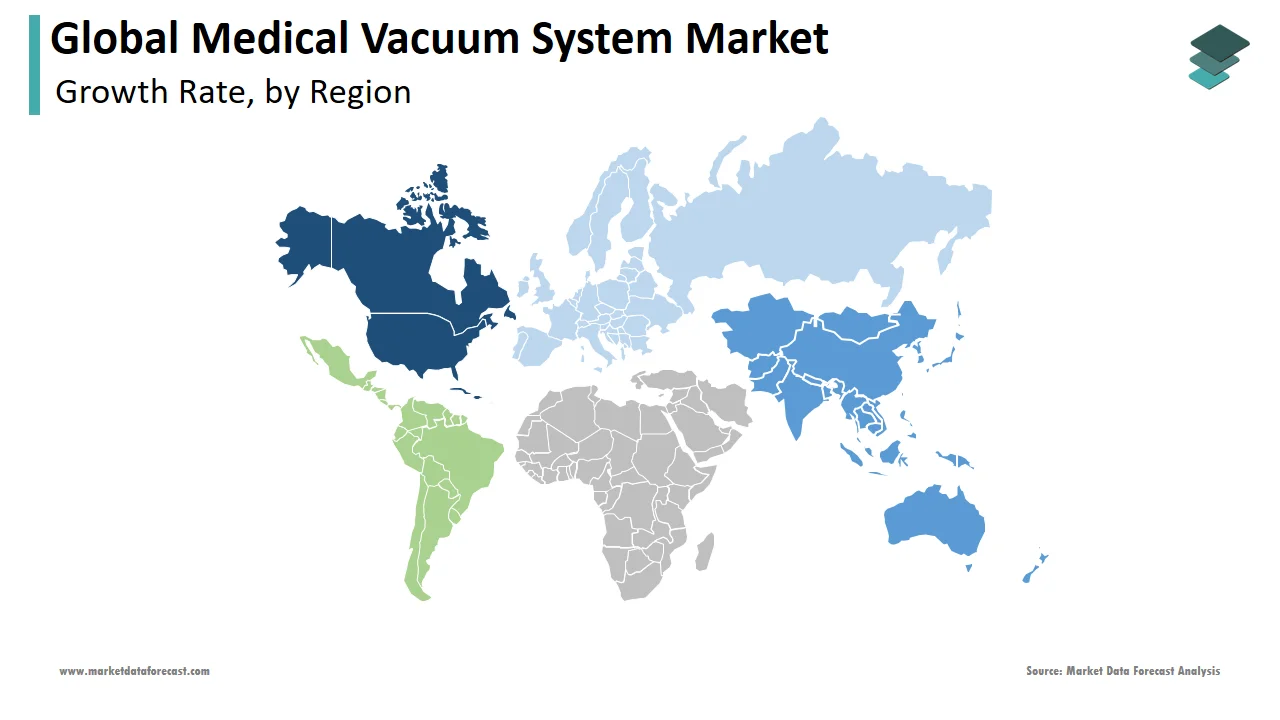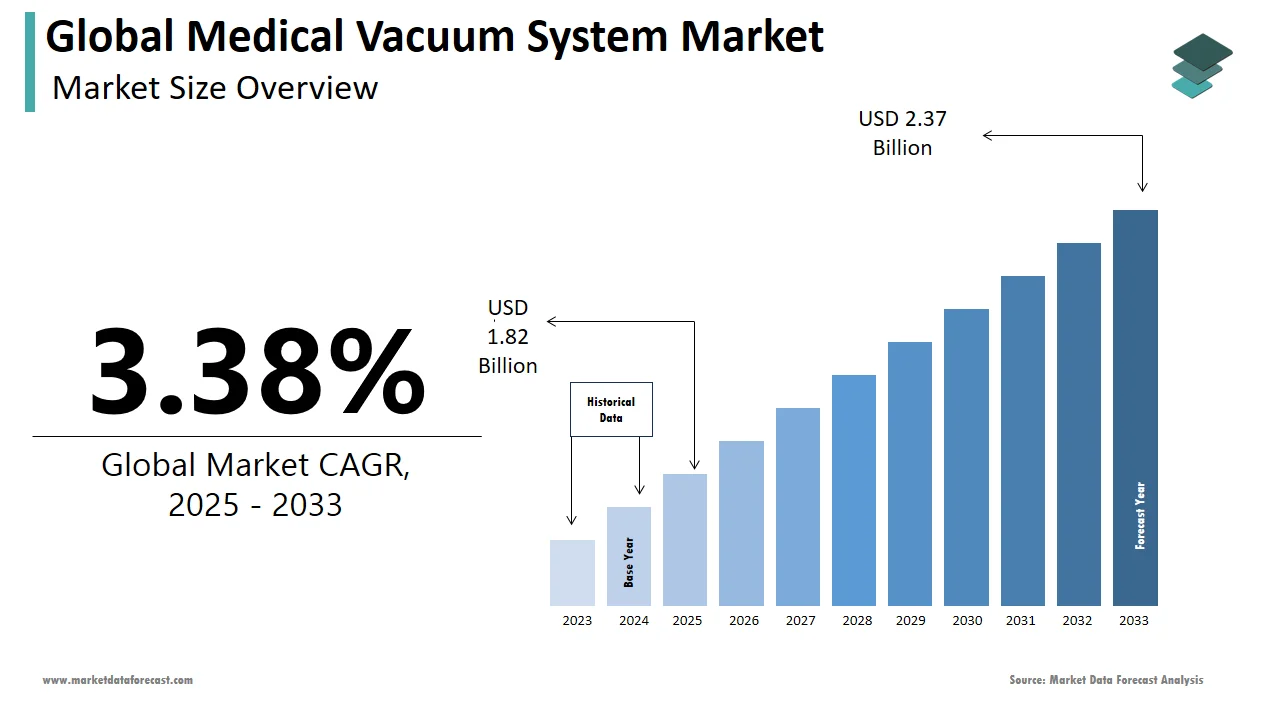Global Medical Vacuum System Market Size, Share, Trends & Growth Forecast Report By Product, Technology, Application and Region (North America, Europe, Asia-Pacific, Latin America, Middle East and Africa), Industry Analysis From 2025 To 2033.
Global Medical Vacuum System Market Size
The size of the global medical vacuum system market was worth USD 1.76 billion in 2024. The global market is anticipated to grow at a CAGR of 3.38% from 2025 to 2033 and be worth USD 2.37 billion by 2033 from USD 1.82 billion in 2025.
MARKET DRIVERS
The emerging demand for technologically advanced and superior-quality medical vacuums is one of the major factors propelling the medical vacuum system market.
Recently introduced medical vacuum systems produce a suction system to safely evacuate unwanted fluids and gases to maintain sterility during procedures. High-end medical vacuum systems frequently include cutting-edge filtration and disinfection techniques. These systems eliminate infectious waste, aerosols, and airborne pathogens from patient areas, surgical rooms, and laboratories, lowering the risk of nosocomial infections and cross-contamination. These devices are extremely significant because of their enhanced safety and infection control capabilities, particularly considering the COVID-19 pandemic and other infectious diseases.
The growing prevalence of chronic diseases worldwide further boosts the market growth. The patient population suffering from chronic diseases such as diabetes, cancer and other infectious diseases is rapidly growing worldwide. The rapid adoption of sedentary lifestyles and lack of physical inactivity among people could be the potential factors contributing to the growing prevalence of chronic diseases. An estimated 422 million people worldwide have diabetes, according to the CDC. Owing to the growing chronic disease patient population worldwide, the need for medical vacuum systems is rising.
The growing number of targeted surgical procedures further fuels the growth rate of the medical vacuum system market. Medical vacuum systems play a crucial role in creating a clear surgical field by efficiently removing smoke, fluids, and debris to ensure optimal visibility for surgeons during these procedures. The growing demand for specialized surgical procedures such as neurosurgery, orthopedics, urology and gynecology and the rapid adoption of targeted surgical procedures in these specialties contributes to the global market growth.
Factors such as technological advancements, stringent regulatory frameworks mandating the use of vacuum systems and an increasing number of diagnostic imaging procedures further drive the growth of the medical vacuum system market.
MARKET RESTRAINTS
The high initial installation and maintenance costs associated with the medical vacuum systems significantly impede market growth. Stringent regulatory requirements and compliance issues, poor awareness and understanding of advanced vacuum technologies and lack of skilled technicians for system maintenance and troubleshooting hinder the market growth. Infrastructure limitations in healthcare facilities, limited reimbursement policies for vacuum system investments and reliance on traditional vacuum methods impede the adoption of advanced systems and the market’s growth rate. Complex procurement processes and budget constraints, compatibility issues with existing hospital infrastructure and concerns over infection control and maintenance of hygienic conditions further challenge the market growth.
REPORT COVERAGE
|
REPORT METRIC |
DETAILS |
|
Market Size Available |
2024 to 2033 |
|
Base Year |
2024 |
|
Forecast Period |
2025 to 2033 |
|
CAGR |
3.38% |
|
Segments Covered |
By Product, Technology, Application, and Region. |
|
Various Analyses Covered |
Global, Regional, and country-level analysis; Segment-Level Analysis, DROC; PESTLE Analysis; Porter’s Five Forces Analysis, Competitive Landscape; Analyst Overview of Investment Opportunities |
|
Regions Covered |
North America, Europe, APAC, Latin America, Middle East & Africa |
|
Market Leaders Profiled |
Allied Healthcare Products, Inc., Medala AG, Air Techniques, Laerdal Medical, Atlas Copco AB., Gardner Denver, INTEGRA Biosciences AG, Medicop, Olympus Corporation, Precision Medical, Inc., and Others. |
SEGMENTAL ANALYSIS
By Product Insights

Based on the product type, the standalone vacuum system segment led the market in 2024 and is anticipated to continue to dominate the market during the forecast period. Standalone vacuum systems are highly preferred during dental surgeries. Standalone vacuum systems are more mobile and adaptable. Based on requirements, they can be erected and moved into various locations around a healthcare institution because they are self-contained units. The growing demand for portable solutions in healthcare environments such as ambulatory surgical centers, clinics, and mobile healthcare units primarily drives the growth of the standalone vacuum system segment. The portable vacuum system is another lucrative segment among all and is estimated to witness the fastest CAGR during the forecast period. The mobility and flexibility, point-of-care uses, remote and rural healthcare, emergency and disaster recovery, home healthcare and ambulatory settings, technological advancements, and an aging population with chronic diseases are some of the major factors propelling the growth of the portable vacuum system segment. The development and widespread use of portable vacuum systems in different medical environments further contribute to the segmental growth.
By Technology Insights
Based on technology, the oil-sealed liquid ring technology segment is anticipated to hold the leading share of the global market during the forecast period. Under the most difficult circumstances, an oil-sealed liquid ring vacuum system can offer the highest level of dependability. Due to the lack of moving parts, these extremely effective devices are typically simple to maintain. The lack of metal-on-metal contact between the impeller and casing is advantageous and makes the oil-sealed liquid ring technology the most convenient option for healthcare facilities. These can also operate with no additional internal lubrication.The dry rotary wane technology segment is expected to grow at a noteworthy CAGR in the coming years. Dry rotary wane technology has an extended lifespan, low vibration, high efficiency, and low energy use of dry rotary vanes. The benefits that dry rotary wane technology offers drive segmental growth.
By Application Insights
Based on application, the diagnostics segment is anticipated to hold the largest share of the global market period. The growing preference for portable and advanced medical vacuum systems during surgical procedures majorly propels the growth of the diagnostics segment.The therapeutic segment had a considerable share of the worldwide market in 2024 and is estimated to grow at a notable CAGR in the coming years.
REGIONAL ANALYSIS

Based on region, North America held the largest share of the worldwide market in 2024 and the domination of the North American region is anticipated to continue throughout the forecast period. The growing patient awareness of infectious diseases, the presence of a well-established healthcare system and the availability of a favorable reimbursement system drive the growth of the North American market. High healthcare spending and rising awareness among patients and healthcare professionals regarding cutting-edge medical vacuums further fuel the growth rate of the North American market. The U.S. is predicted to hold the leading share of the North American market in the coming years owing to the presence of strong healthcare infrastructure and established major players.
The Asia-Pacific is estimated to occupy the second-largest share of the global market during the forecast period. Factors such as the growing patient population suffering from periodontal disorders, diabetic foot, pressure ulcers and infections majorly contribute to the regional market growth. The rapidly growing healthcare sector, increasing number of medical procedures and surgeries, technological advancements and increasing healthcare expenditure propel the APAC market growth.
Europe is a notable regional market for medical vacuum systems worldwide and is expected to capture a substantial share of the worldwide market during the forecast period. Factors such as robust healthcare infrastructure with a high emphasis on patient care, rising awareness about infection prevention and control measures and rapid adoption of advanced medical technologies and equipment drive the growth of the European market. The growing investments in healthcare research and development and the rising prevalence of chronic diseases further drive the European market growth.
The Latin America region accounted for a considerable share of the global market in 2024 and is expected to grow at a healthy CAGR during the forecast period. The growing healthcare costs, increasing improvements in the healthcare infrastructure, rising emphasis on infection control, medical tourism, legislation and regulations, growing burden of chronic diseases and technological advancements support the Latin American market growth.
The Middle East and Africa is anticipated to hold a moderate global market share in the coming years.
KEY MARKET PLAYERS
Allied Healthcare Products, Inc., Medala AG, Air Techniques, Laerdal Medical, Atlas Copco AB., Gardner Denver, INTEGRA Biosciences AG, Medicop, Olympus Corporation and Precision Medical, Inc. are some of the major players in the global medical vacuum system market.
RECENT MARKET HAPPENINGS
- In November 2022, General Hospital in Siddipet, India, received vacuum-assisted birth systems from ECIL, which notified the hospital that the system aids gentle, smooth deliveries and enables doctors to conduct safe, tailored treatments. Up to 3,600 local expectant mothers will benefit from this program.
- In May 2021, AES Group, Inc., and the engineering team of a Northern California hospital recently cooperated on a comprehensive medical vacuum system solution that provides the institution with the desired level of dependability.
MARKET SEGMENTATION
This research report on the medical vacuum system market has been segmented and sub-segmented based on the product, technology, application, and region.
By Product
- Standalone Vacuum systems
- Centralized Vacuum systems
- Portable Vacuum System
- Compact Vacuum System
By Technology
- Dry Claw Vacuum Pump Technology
- Oil-Sealed Liquid Ring Technology
- Dry Rotary Wane Technology
- Oil-Sealed Rotary Vane Technology
- Water-Sealed Liquid Ring Technology
By Application
- Therapeutic Applications
- Research
- Diagnostics
- Pharmaceutical and Biotechnology Manufacturing
By Region
- North America
- Europe
- Asia-Pacific
- Latin America
- Middle East and Africa
Frequently Asked Questions
What regions are witnessing significant growth in the medical vacuum system market?
The medical vacuum system market is experiencing notable growth across regions such as North America, Europe, and the Asia Pacific. Emerging economies in the Asia Pacific are showing rapid expansion due to increased healthcare spending and infrastructure development.
What is driving the growth of the medical vacuum system market?
The medical vacuum system market is primarily driven by the increasing demand for advanced healthcare facilities, a rise in surgical procedures, stricter regulations for healthcare infrastructure, and a growing focus on infection control measures within medical environments.
How is the competition structured in the medical vacuum system market?
The market features a mix of established companies with a strong reputation and newer players offering innovative solutions. Established companies often focus on reliability and compliance, while newer entrants might emphasize technology-driven features.
Related Reports
Access the study in MULTIPLE FORMATS
Purchase options starting from $ 2500
Didn’t find what you’re looking for?
TALK TO OUR ANALYST TEAM
Need something within your budget?
NO WORRIES! WE GOT YOU COVERED!
Call us on: +1 888 702 9696 (U.S Toll Free)
Write to us: [email protected]

